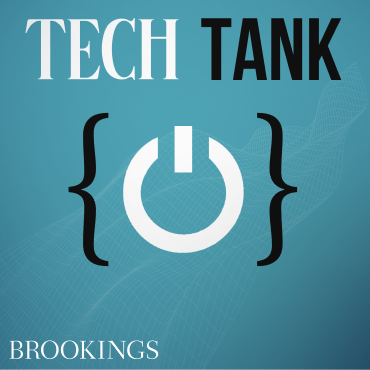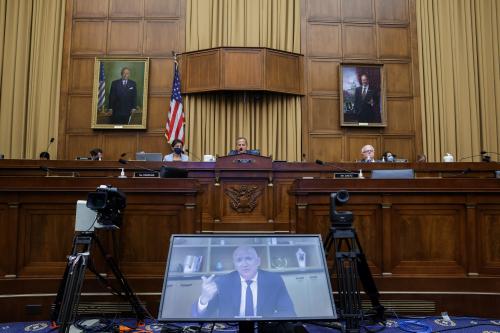TechTank, a biweekly podcast from the Center for Technology Innovation at Brookings, explores today’s most consequential technology issues. Moderators Nicol Turner Lee and Darrell West speak with experts and policymakers to share data, ideas, and policy solutions that address the challenges of our digital world.
On June 20, President Donald Trump showed up in Tulsa, Oklahoma for his first campaign rally after a three-month hiatus. Before the rally, the Trump campaign bragged about the million tickets that had been pre-requested. But when the rally started only 6,200 people showed up at the arena, and the President addressed a sea of empty chairs. Politically active young people used TikTok to encourage others to reserve tickets but not show up, thereby forcing Trump to play to an empty room.
Soon thereafter, President Trump released an Executive Order banning Chinese applications TikTok and WeChat in the United States and ordering TikTok’s sale to an American company. He argued the companies could release personal data to the Chinese government and therefore represented a national security threat. TikTok now is in talks with Oracle for the sale of its American operations.
In this episode, Darrell West, Nicol Turner Lee, and Tom Wheeler address the broader issues represented by these presidential actions and whether they signal a trend toward a fractured internet divided by national boundaries and security fears. If the president makes good on his order to ban these applications or force TikTok to be sold to a U.S. firm, will the concept of an open, borderless internet vanish? These are the crucial questions that will shape the future of the internet and U.S. tech policy.
You can listen to the episode and subscribe to the TechTank podcast on Apple, Spotify, or Acast.
The Brookings Institution is committed to quality, independence, and impact.
We are supported by a diverse array of funders. In line with our values and policies, each Brookings publication represents the sole views of its author(s).













Commentary
PodcastShould Trump ban TikTok and WeChat? | The TechTank Podcast
September 17, 2020
Listen on
The TechTank Podcast